Otoplasty in Israel
Search and Compare the Best Clinics and Doctors at the Lowest Prices for Otoplasty in Israel

Find the best clinics for Otoplasty in Israel
With Medijump you can browse 10 facilities offering Otoplasty procedures in Israel. The cheapest price available is $677 in Tel Aviv. And for the cheapest price globally, prices start from $100 in Egypt.
Otoplasty in Tel Aviv
Price: $ 677
Otoplasty in Ramat Gan
Price: $ 2,429
Egypt offers the best prices Worldwide
Price: $ 100
From 24 verified reviews
sigalit kochmeister, 11 February 2020
Very professional, kind and attentiveLovely clinic and wonderful staffHighly recommend
From 24 verified reviews
Raymonde Amsalem, 02 February 2020
True courtesy and integrity! Uncompromising professionalism in maintaining a natural and flattering aesthetic appearance. Dr. Meir Cohen and his staff are simply outstanding! Highly recommend
From 109 verified reviews
Y N, 22 September 2020
Excellent medical center, with friendly staff and highly qualified doctors.Thank you for your work.My operation was successful
From 126 verified reviews
Y Jilani, 19 September 2020
A huge academic hospital serving the greater jerusalem area, world class health professionals and good location and amenities!
From 122 verified reviews
fadi hreaz, 27 August 2020
Hospital gives reasonable treatment but poor sorting
Tel Aviv Sourasky Medical Center (Ichilov Medical Center), can be found in Arison New Hospitalization Building, Tel Aviv, Israel and offers its patients Otoplasty procedures as well as 428 other procedures, across 29 different procedure categories. At present, there is no pricing information for Otoplasty procedures at Tel Aviv Sourasky Medical Center (Ichilov Medical Center). The pricing information is quite specialised, so it's only available on request, and the average price is around ฿55,875. Many medical professionals work at the Clinic, with 13 in total, and Tel Aviv Sourasky Medical Center (Ichilov Medical Center) is accredited by just one known accreditations institute, JCI Accredited
Tel Aviv medical Center T.A.M.C. LTD, can be found in Arison New Hospitalization Building, Tel Aviv, Israel and offers its patients Otoplasty procedures as well as 14 other procedures, across 7 different procedure categories. At present, there is no pricing information for Otoplasty procedures at Tel Aviv medical Center T.A.M.C. LTD. The pricing information is quite specialised, so it's only available on request, and the average price is around $1,553. Many medical professionals work at the Hospital, with 11 in total, and Tel Aviv medical Center T.A.M.C. LTD is not accredited by any recognised accreditations institutions.
IIMedCare, can be found in Arison New Hospitalization Building, Tel Aviv, Israel and offers its patients Otoplasty procedures as well as 19 other procedures, across 3 different procedure categories. At present, there is no pricing information for Otoplasty procedures at IIMedCare. The pricing information is quite specialised, so it's only available on request, and the average price is around $1,553. A small team of medical professionals undertake all procedures at the Hospital, with 3 in total, and IIMedCare is not accredited by any recognised accreditations institutions.
InterMedExpert, can be found in Arison New Hospitalization Building, Tel Aviv, Israel and offers its patients Otoplasty procedures as well as 41 other procedures, across 15 different procedure categories. At present, there is no pricing information for Otoplasty procedures at InterMedExpert. The pricing information is quite specialised, so it's only available on request, and the average price is around $1,553. The lead specialist at the Hospital will be carrying out all the treatments, and InterMedExpert is not accredited by any recognised accreditations institutions.
Assuta Medical Center, can be found in Arison New Hospitalization Building, Tel Aviv, Israel and offers its patients Otoplasty procedures as well as 15 other procedures, across 6 different procedure categories. At present, there is no pricing information for Otoplasty procedures at Assuta Medical Center. The pricing information is quite specialised, so it's only available on request, and the average price is around $1,553. A small team of medical professionals undertake all procedures at the Hospital, with 3 in total, and Assuta Medical Center is not accredited by any recognised accreditations institutions.
- Home
- Israel
Compare Before & After Photos of _procedure_photos.phpOtoplasty
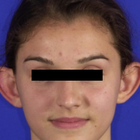
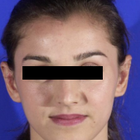
Front view
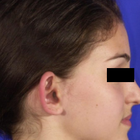
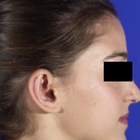
Full-side view
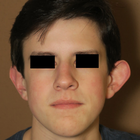

Front view
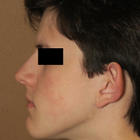
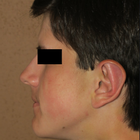
Full-side view
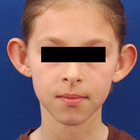
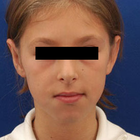
Front view
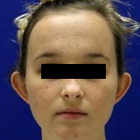
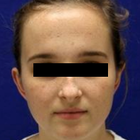
Front view
WHY US?
At Medijump, we're making medical easy. You can search, compare, discuss, and book your medical all in one place. We open the door to the best medical providers worldwide, saving you time and energy along the way, and it's all for FREE, no hidden fees, and no price markups guaranteed. So what are you waiting for?

Free

Best Price

Widest Selection

Risk-Free
What you need to know about Otoplasty in Israel
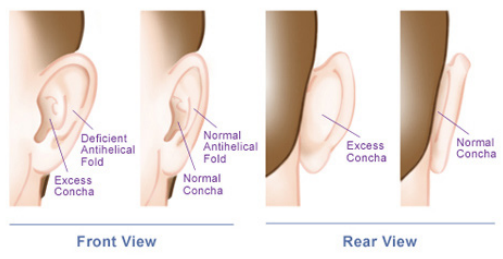
Otoplasty, also referred to as cosmetic ear surgery, is a type of cosmetic procedure to change the size, shape, or position of the ear. It is performed on the visible part of the outer ear, called auricle. Some people choose to have the surgery to correct odd-shaped ears due to an injury or birth defect. Others have it because they are concerned with how their ears protrude too far from their head. Otoplasty can be performed at any age after the ears have reached their full size, generally after age 5. In some cases, the surgery may be done as early as age 3.
There are several types of otoplasty. The following are the most common:
- Ear pinning draws the ears closer to the head. It is usually done on people whose ears stick out too far from their head.
- Ear augmentation is ideal for individuals whose ears are small or have not completely developed. This type of otoplasty can increase the size of the outer ear.
- Ear reduction is usually done on people with macrotia, which is a condition when the ears are larger than normal. Otoplasty can reduce the size of the ears.
What does a Otoplasty Procedure Involve?
Otoplasty is typically carried out under local anesthesia with a sedative, so you will be awake but you will not feel any pain. In some cases, general anesthesia may be used, typically for younger children.
The techniques used by your surgeon vary based on the type of otoplasty you are having. In general, your surgeon makes an incision either within the inner creases of your ears or on the backs of your ears. Then, your surgeon manipulates the tissue of the ear, which may include removal of cartilage or skin, grafting of cartilage to the ear, or folding and shaping of cartilage using permanent stitches. Once your surgeon is done correcting the shape, size, and position of your ears, the incisions are closed with stitches.
How Long Should I Stay in Israel for a Otoplasty Procedure?
Otoplasty can take between 1 and 3 hours to perform, depending on the complexity and the specifics of the procedure. It is typically done as an outpatient procedure, which means you can leave the hospital on the same day. It is recommended that you stay in Israel for 7 more days for follow-up checkups and removal of stitches.
What's the Recovery Time for Otoplasty Procedures in Israel?
The recovery period may vary from one person to another. You may experience numbness for several weeks, and mild bruising for about 2 weeks. For several months, your ears may feel stiff and sore.
You should be able to go back to work and resume your normal activities, including exercise, within one to two weeks after surgery. Physical contact sports, such as rugby, football, or judo, should be avoided for at least 3 months. You should also avoid swimming for up to 8 weeks following your otoplasty.
What sort of Aftercare is Required for Otoplasty Procedures in Israel?
Your surgeon will provide post-operative instructions. Make sure to follow the instructions carefully to promote smooth and quick recovery. You should rest with your head elevated on 2-3 pillows to minimize swelling. It is recommended that you eat a light, soft, and cool diet for several days. Take pain medication as prescribed by your doctor. Avoid sleeping on your side or rub the incisions to keep pressure off your ears. Consider wearing shirts with loose-fitting collars or button-down shirts.
What's the Success Rate of Otoplasty Procedures in Israel?
Otoplasty is a safe and effective procedure, with high satisfaction rates. More than 90% of people who had the procedure claimed to be extremely happy with the results. Note that it may take some time for the result to be fully visible.
While it is a safe procedure, you still need to be aware of possible risks and complications that otoplasty carries. These include bleeding, hematoma formation, infection of the skin, infection of the cartilage of the ear, permanent or temporary numbness around the affected area, scar or keloid formation, unfavorable results, prolonged pain, narrowing of the external ear canal, impaired healing, changes in skin sensation, asymmetry, and overcorrection.
Are there Alternatives to Otoplasty Procedures in Israel?
There are not many viable alternatives to otoplasty as of yet. One of the most popular alternatives is nonsurgical otoplasty, which does not require any incisions. The procedure uses special sutures to pin the ears back and achieve a more symmetrical look. These sutures are woven into the ears and will remain in place permanently. They are also virtually invisible, so the results will look natural.
For babies under three months old with prominent ears, ear-molds can be taped to their ears to reshape the ears without surgery. This type of treatment typically takes about six to eight weeks.
What Should You Expect Before and After the Procedure
Before otoplasty, you may have prominent or large ears or other deformity caused by an injury or birth defect that bothers you. Some people also feel self-conscious and embarrassed by the shape, size, and position of their ears. After the procedure, your ears will be corrected. Small or underdeveloped ears will be augmented to increase the size, the size of large ears will be reduced, and prominent ears will be drawn closer to the head. Your appearance will improve and you may feel more confident.
Whilst the information presented here has been accurately sourced and verified by a medical professional for its accuracy, it is still advised to consult with your doctor before pursuing a medical treatment at one of the listed medical providers
No Time?
Tell us what you're looking for and we'll reachout to the top clinics all at once
Enquire Now

Popular Procedures in Israel
Prices Start From $28

Prices Start From $1,945

Prices Start From $120

Prices Start From $275

Recommended Medical Centers in Israel for Otoplasty

- Interpreter services
- Translation service
- Religious facilities
- Medical records transfer
- Medical travel insurance
- Health insurance coordination
- TV in the room
- Safe in the room
- Phone in the room
- Private rooms for patients available

- Interpreter services
- Translation service
- Religious facilities
- Medical records transfer
- Medical travel insurance
- Health insurance coordination
- TV in the room
- Safe in the room
- Phone in the room
- Private rooms for patients available

- Interpreter services
- Translation service
- Religious facilities
- Medical records transfer
- Medical travel insurance
- Health insurance coordination
- TV in the room
- Safe in the room
- Phone in the room
- Private rooms for patients available

- Interpreter services
- Translation service
- Religious facilities
- Medical records transfer
- Medical travel insurance
- Health insurance coordination
- TV in the room
- Safe in the room
- Phone in the room
- Private rooms for patients available

- Interpreter services
- Translation service
- Religious facilities
- Medical records transfer
- Medical travel insurance
- Health insurance coordination
- TV in the room
- Safe in the room
- Phone in the room
- Private rooms for patients available

- Interpreter services
- Translation service
- Religious facilities
- Medical records transfer
- Medical travel insurance
- Health insurance coordination
- TV in the room
- Safe in the room
- Phone in the room
- Private rooms for patients available

- Interpreter services
- Translation service
- Religious facilities
- Medical records transfer
- Medical travel insurance
- Health insurance coordination
- TV in the room
- Safe in the room
- Phone in the room
- Private rooms for patients available

- Interpreter services
- Translation service
- Religious facilities
- Medical records transfer
- Medical travel insurance
- Health insurance coordination
- TV in the room
- Safe in the room
- Phone in the room
- Private rooms for patients available

- Interpreter services
- Translation service
- Religious facilities
- Medical records transfer
- Medical travel insurance
- Health insurance coordination
- TV in the room
- Safe in the room
- Phone in the room
- Private rooms for patients available

- Interpreter services
- Translation service
- Religious facilities
- Medical records transfer
- Medical travel insurance
- Health insurance coordination
- TV in the room
- Safe in the room
- Phone in the room
- Private rooms for patients available
Otoplasty in and around Israel
About Israel
Israel celebrated 70 years of independence in 2018 - in what is a truly ancient land. The world’s only Jewish and democratic state is home to sites sacred to Judaism, Christianity, and Islam. While these holy places are truly unique attractions, there is more to Israel than religious heritage and complex politics. Jerusalem is the official capital and holy city to three world religions, previously mentioned, while Tel Aviv brims with beaches and bustles with urban vitality. Then there’s the Dead Sea and Masada, the stark, stunning Negev, and fertile Galilee. The number of museums and cultural institutions per relative area is larger in Israel than anywhere in the world.
Home to more than 30 JCI accredited facilities, medical tourists visit Israel for a variety of procedures, but particularly dental and tertiary care. Otoplasty procedures are also a popular choice.
Popular Parts of Israel
Israel is an alluring destination for those who want to appreciate its astonishing religious sites, stunning natural beauty, and remarkable historic relics.
- Tel Aviv is the economic and technological center of Israel, with a population of over 400,000; it is the most populous city in the country. Located on the Mediterranean coastline, the city offers sunny beaches for any sun-chaser. The city has impressive architecture and has a modern cosmopolitan landscape. Tel Aviv Museum of Art houses works by international artists. In addition, it has a nonstop nightlife with a huge party option to fit every taste.
- Haifa is the country’s third-largest city and it is one of Israel’s high-technology centers as well as a busy working port. The city may have an industrious image, but with a number of museums, gardens, and shrines, it is an amazing place to travel to. The Baha’i Gardens are possibly the most popular attraction as it is the final resting place of the prophet-herald of the Baha’i Faith. Tourists can have a bird’s eye view from the platform at the top or take a free Panorama Tour.
- Eilat is located at the southernmost tip of Israel and is the only Israeli city on the Red Sea. Families come to the city to have a good time on the beach and party-goers come for its all-night parties. The turquoise waters invite visitors to snorkel, scuba dive, or swim. It is recommended to stay in an Oasis at night to get a chance to stargaze under a clear desert night sky. During the day, visit the Eilat Mountains to have a beautiful view of an ancient desert.
- Tsfat or Safed is a quaint mountain-top city surrounded by pine forests. Located at an elevation of 900 meters, the city enjoys warm summers and cold winters. It is a popular summer holiday resort frequented by Israelis and foreign visitors. Here, tourists will find synagogues, art galleries, and unique crumbling stone houses.
- Jerusalem is one of the oldest cities in the world and three major Abrahamic religions (Judaism, Islam, and Christianity) considered it a holy city. Even though it has been destroyed and rebuilt over thousands of years, the city manages to endure its spiritual magnetism. It is overflowing with holy sites, diversity, and layers of history.
Weather and Climate in Israel
Israel is a year-round destination but the temperatures in the city vary widely. The coastal areas such as Tel Aviv and Haifa experiences a typical Mediterranean climate where the winters are rainy and the summers are hot. The area around Northern Negev has a semi-arid climate with hot summers and cool winters. The Southern Negev has a desert climate with extremely hot summers and mild winters. On the other hand, mountainous regions have pleasant summer and cold winters with a little snowfall.
Generally, the winter months from November to March are the coldest months in the country. When mountainous areas such as Jerusalem receives snowfall, the coastal areas experience heavy rainfall. Summer starts in June and ends in August and it is the hottest season in every part of the country, especially in the desert area where the heat can be overbearing. The seasons of spring and autumn have the best weather, with pleasant temperatures and fewer rainy days.
Getting Around in Israel
Ben Gurion Airport is the main gateway to Israel and it is the busiest airport in the country located 20 kilometers southeast of Tel Aviv and 45 kilometers northwest of Jerusalem. The airport is ranked among the five best airports in the Middle East. It serves both domestic and international flights to and from numerous major cities around the world. There is two main passenger terminal at this airport. Terminal 1 serves domestic flights and international budget airlines such as EasyJet and Vueling, while Terminal 3 serves international flights.
Since the distance between one city to another is relatively short, getting around Israel is easy. The quickest and most convenient way is by domestic flights. The tickets are not very expensive and deals are often available online. Sometimes a one-way ticket can cost as little as 89 NIS (25 USD). Buses are also convenient but can be slow during traffic jams. Buses connecting Jerusalem, Tel Aviv, and Haifa depart very frequently. A one-way ticket from Tel Aviv to Jerusalem is around 25 NIS (7 USD). Israel’s main bus company is the Egged Bus Company. Trains are also available and very comfortable. They are a lot faster than the bus but the cost can be higher.
Taxis are widely available and can be hailed directly from the streets. Although most taxis are metered, you can agree on a fixed rate and be aware that some drivers are known to overcharge tourists, so you should insist on using the meter and make sure that it is reset to the base fare after you get in. The base fare is normally around 12.30 NIS (3.5 USD). There is also a shared taxi van known as Sherut. It is a good option to travel between Tel Aviv and Jerusalem or Tel Aviv and Haifa.
Tourist Visas in Israel
All visitors must hold a passport valid for at least six months after the date of departure from Israel. Citizens of 99 countries including the European Union, Canada, Singapore, Russia, and the United States do not require a visa to enter the country for up to 3 months. Nationals not listed on the visa exemption agreement need to obtain a visa and should contact their nearest embassy of Israel. Citizens of 25 countries require a confirmation from the Israeli government before a tourist visa is issued.
Additional Information
- Local Currency: The currency is the New Israeli Shekel (NIS) and 1 USD will get you 3.28 NIS.
- Money & Payments: ATMs that accept international cards are widespread (mostly Visa and MasterCard), except at border crossings with Egypt and Jordan. Credit cards are widely accepted and tipping is common but normally not expected.
- Local Language: The official language is Hebrew and Arabic has a special status under Israeli law as a semi-official language. Russian is spoken by around 20% of the population. Most of the population can speak English fairly well as it is required in schools and universities.
- Local Culture and Religion: More than 70% of the population follows Judaism. There are small groups of Muslims, Christian, and Druze. Muslims are the largest minority group in the country.
- Public Holidays: The country celebrates major national holidays as well as Jewish holidays such as Independence Day, Jerusalem Day, and Hanukkah.
Popular Searches
- Plastic Surgery in Thailand
- Dental Implants in Thailand
- Hair Transplant in Thailand
- Breast Augmentation Thailand
- Gastric Sleeve in Thailand
- Gender Reassignment Surgery in Thailand
- Laser Hair Removal in Bangkok
- Botox in Bangkok
- Dermatology in Bangkok
- Breast Augmentation in Bangkok
- Coolsculpting in Bangkok
- Veneers in Turkey
- Hair Transplant in Turkey
- Rhinoplasty in Turkey
- Stem Cell Therapy in Mexico
- Rhinoplasty in Mexico
- Liposuction in Mexico
- Coolsculpting in Tijuana
- Rhinoplasty in Korea
- Scar Removal in Korea
- Gastric Sleeve in Turkey
- Bone Marrow Transplant in India
- Invisalign in Malaysia
- Plastic Surgery in the Dominican Republic
- Tummy Tuck in the Dominican Republic
- Plastic and Cosmetic Surgery in Poland
- Rhinoplasty in Poland
- Hair Implant in Poland
- Dental Implants in Poland
- IVF in Turkey









